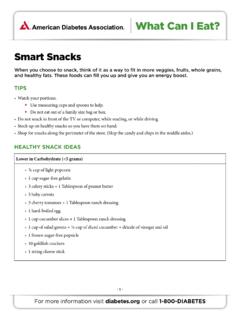Transcription of Viscosity Scales - Smooth-On, Inc.
1 EVERYDAY CONSUMABLE GOODS IN RELATION TO GENERAL PRODUCT Viscosity IN CENTIPOSE (CPS) Water @ 70 degrees F1 - 3centipoise (cps) Blood or Kerosene 10centipoise (cps) Ethylene Glycol or Anti-Freeze 15centipoise (cps) Motor Oil (SAE 10) 50centipoise (cps) Corn Oil 65centipoise (cps) UNFILLED RIGID URETHANE RESIN 80-120centipoise (cps) Maple Syrup or Motor Oil (SAE 30) 150-200centipoise (cps) Caster Oil or Motor Oil (SAE 40) 250-500centipoise (cps) Glycerin or Motor Oil (SAE 60) 1,000-2,000centipoise (cps) URETHANE RUBBERS 1,000-2,000centipoise (cps) Honey or Corn Syrup 2,000-3,000centipoise (cps) Molasses5,000-10,000centipoise (cps) Chocolate Syrup 10,000-25,000centipoise (cps) SILICONE RUBBER 14,000-40,000centipoise (cps) Ketchup or Mustard 50,000-70,000centipoise (cps) peanut butter or Tomato Paste 150,000-250,000centipoise (cps) Lard or Crisco Shortening 1,000,000-2,000,000centipoise (cps) Caulking Compound 5,000,000-10,000,000centipoise (cps) Window Putty 100,000,000centipoise (cps) These are general averages and NOT specifics, not all products fit neatly in this check Technical Bulletins for specific mixed Viscosity of products.
2 Viscosity is a measure of the resistance of a fluid which is being deformed by either shear stress or tensile stress. In everyday terms (and for fluids only), Viscosity is thickness . Thus, water is thin , having a lower Viscosity , while honey is thick , having a higher Viscosity . Put simply, the less viscous the fluid is, the greater its ease of movement (fluidity). Viscosity describes a fluid s internal resistance to flow and may be thought of as a measure of fluid friction. All real fluids (except superfluids) have some resistance to stress and therefore are viscous, but a fluid which has no resistance to shear stress is known as an ideal fluid or inviscid Scales



